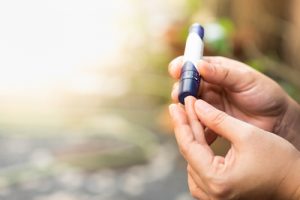There are numerous methods for diabetes management in the United States. Today, new research is being conducted in Europe for better ways of managing the disease. One of these new procedures is known as duodenal mucosal resurfacing (DMR).
How DMR Can Improve the Outcome of Diabetes Management
Did you know that diabetes is considered an autoimmune disease? This means that the body attacks the good cells, causing the body to have a breakdown in signaling as well as messaging of healing and pain signals.
In DMR, heat is used to remove the top layer of the duodenum. Removing about four inches of this layer of the duodenum removes the top layer of the small intestine. This is important to remember because hormones are held in the cells of the topmost layer of the duodenum.
When these cells are replaced with a new layer of healthy cells, the signaling is then changed to a healthier duodenum. It takes about six months following the procedure in order to prevent those other cells from sending bad signals.
The DMR Procedure

The DMR procedure is a welcomed breakthrough in the treatment of diabetes management. This procedure requires no sedation and provides no discomfort to the patient whatsoever.
One of the leading gastroenterologists in the country, Gregory Ginsberg from the University of Pennsylvania has stated many times that he believes it’s a great thing to offer to those who suffer from diabetes.
Dr. Ginsberg is the leading U.S. doctor working on this procedure at this time. This study in the U.S. is known as a pilot study, and at this time the study is ongoing. This means that there is room for more participants in the study, and that more people with diabetes should consider their next steps before medicating too much with insulin.
Medical professionals in other countries have been more inclined to try newer approaches to unique therapies. The U.S. has treated diabetes management primarily as an insulin supply issue. The hope is that this procedure will aid in the regeneration of a new layer of cells that continues to send the proper signals to the brain for good healing and management of blood sugar.
A Promising Future
There are numerous medical breakthroughs, but it seems that research in the most common chronic conditions are making tremendous progress. This is great news for those who need a better approach to diabetes management, regardless of their current health status.
Once Dr. Ginsberg is able to complete the level of study that he has in mind for the hospital and his participants at the University of Pennsylvania, the DMR procedure could become a primary consideration for the early onset of diabetes in the United States.





